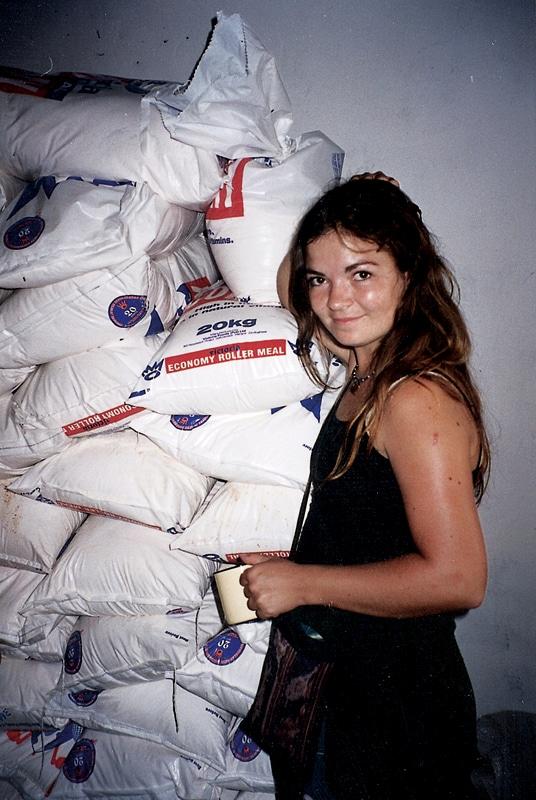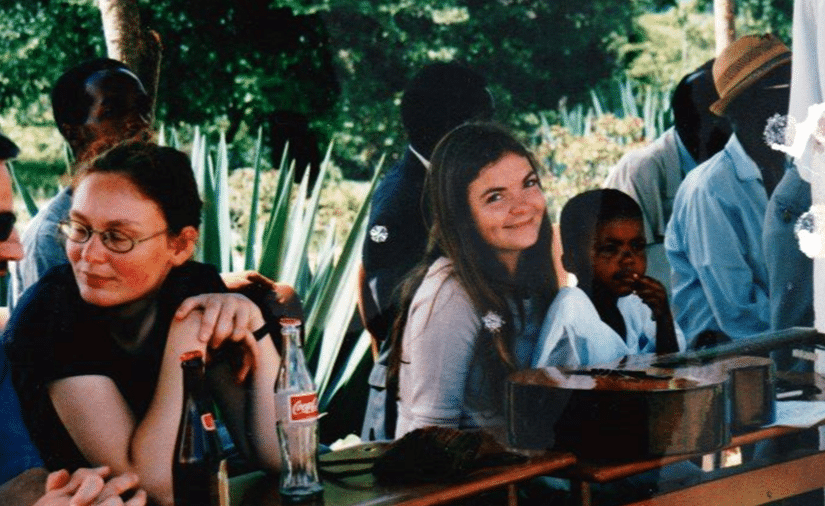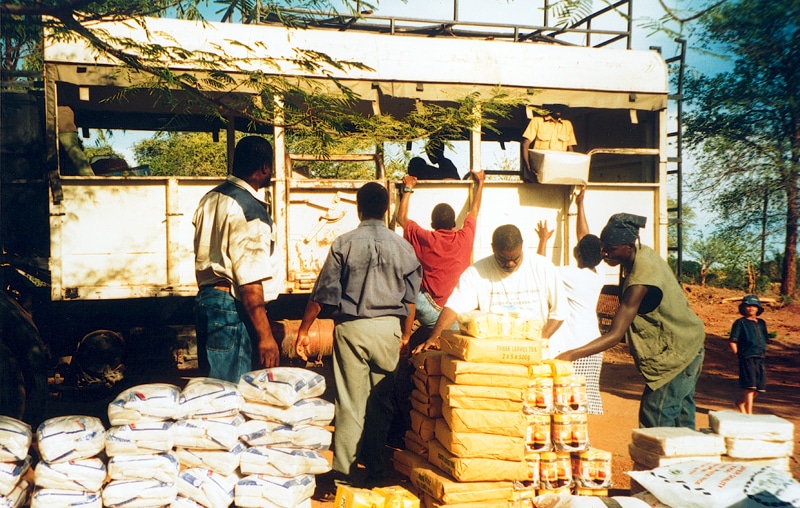In the early 2000s political tension was high in Zimbabwe and there was a fear that a civil war would break out. At the same time a young woman from Norway decided to move into the rural village of Dopota in the north of the country. Ynghild Solholm started the humanitarian organisation, Sabona, after realizing that the basic needs of the people in were not met.
Read about her amazing journey in Zimbabwe in this blogpost:

Understanding the culture was crucial
Moving to Dopota brought on a whole new wave of challenges – understanding the culture and the language was crucial for me to blend in. I was living in the homes of the rural people, and of course I wanted to follow their customs. Naturally, there were a whole lot of things I didn`t know how to do, or even understood why they were done, but it was all a part of a very steep learning curve.

Since I was working at the school the teachers became my first friends, but as time went on, I made a lot of good friends in the village. Back then there was a clear cultural difference between the teachers and locals (as teachers coming from towns and cities with educational background, staying for a year or five, and the villagers that had lived their whole life in Dopota). It wasn`t always easy to make them see eye to eye.
The food station and sponsorship program
When Sabona became a more structured organisation, I wanted the focus of the projects to benefit the whole community, and not just the school. Our first two projects – the food station, and the sponsorship program – were greatly welcomed by everyone, and I wanted to make sure that the other projects were as well. To initiate new projects that would indeed be beneficial to most people, we created a committee constituted by the teachers and representatives from the different villages. Everyone was democratically elected and for the people living in a country run by a dictator, I think this was amazing.
Living under Mugabe
I moved to Zimbabwe in 1999, and at this time there was a sweeping paranoia across the country. Potentially everyone could be an intelligence officer reporting back to the government. If you took the wrong turn at any point, you could bet that someone would report you. The Land Reform had commenced, essentially forcing landowners and their workers out of the homes and jobs. Outbreaks of violence and killings swept across the country and knowing who you could trust or not was difficult. I knew that I was being watched by several people who had a direct line to the government, so I had to be careful about what I said around certain people. From time to time, I had to leave the village for days because it was unsafe for me to stay. I also put the village at risk staying, since I was white and could be taken as a MDC activist they associated with, though I never would have involved myself in politics.
In addition to the political tension, the economy was also in a downward spiral. Zimbabwe, that was once self-sufficient with food and exporting large quantities of agriculture, was suddenly struggling to provide food for its people. The Land Reform had catastrophic consequences for the farms producing food, and with the large sums of money being printed to also pay all the war veterans, inflation was hitting us hard.
Trying to buy food became a ridiculous chore where you went to the bank and stood in line for hours to a make a withdraw. By the time you could go to the store to buy food, the money wasn`t worth enough. Sometimes our only chance to save lives, was to buy the medication in the black marked.
Could never have done it without friends
I could never have done this without the help from friends who stood by me even in the most difficult times. From one day to another the situation literally would change from bad to impossible. This was very clear when the food shortage was at its worst, and people in the villages were starving. We had raised enough money to buy food, but we still needed to get the food and somehow transport it to the village.

My friends thought I was out of my mind for initiating this operation, but they still helped me to make it happen. We stored the food in an empty warehouse, along with two trucks that we would use to transport the food from Bulawayo to the village. There were endless roadblocks on the road, and our hearts almost jumped out of our chest every time we passed one. This was all illegal in the eyes of the government, as they used the food shortage to oppress the citizens.
Through this search for food, I got in touch with a company who helped us secure the food faster and we had a collaboration partner for about four years. And this is how it usually worked. I would talk about our project to people I met and then it turned out the person next to me was an electrician, or an engineer, or a construction worker, or they knew someone who could do something. A lot of people were eager to help, and in this way Sabona had a network of people to call when we started new projects, and for all these people I am forever grateful.
Small steps with a huge impact
Sabona was officially started in 2003, and onwards we had so many great new projects in mind, and we have already realized a lot of them. We found ways around a collapsed system and a suspicious population, where essentially everyone was a potential risk of putting a stop to it all. The organisation made small steps with a huge impact, and luckily, we could continue through the worst years without shutting down.
The article is written by Nina Ferlic.
Nina works as a Lead Client Manager & CSR Officer in Admincontrol. She serves as our steering compass when it comes to Corporate Social Responsibility. Nina has personally been working closely with Sabona for years and spent three months in Zimbabwe in 2015 visiting the Sabona Projects. In March 2020 she travelled back to visit the Sabona family.


